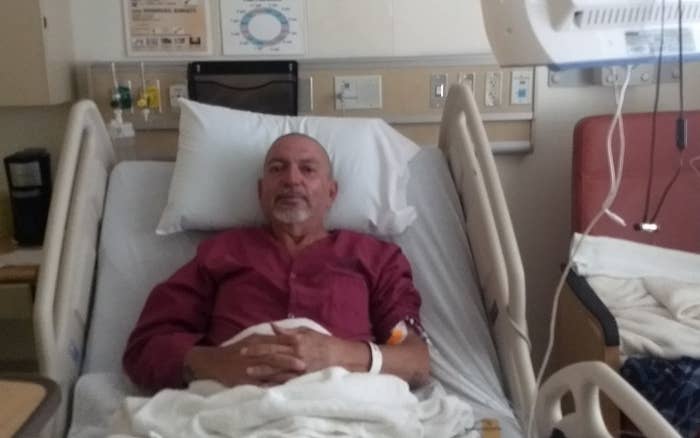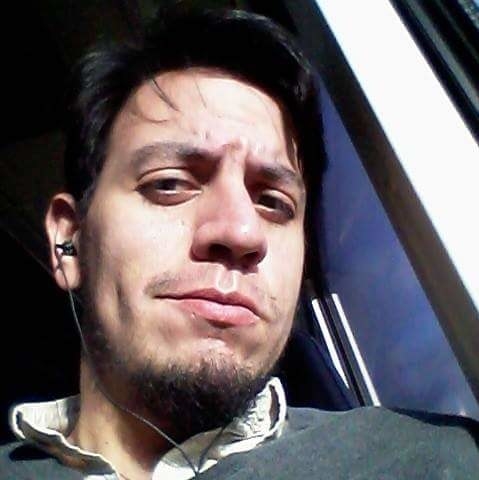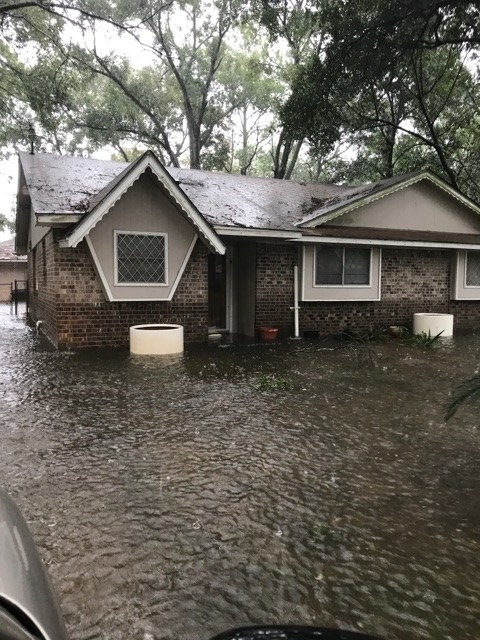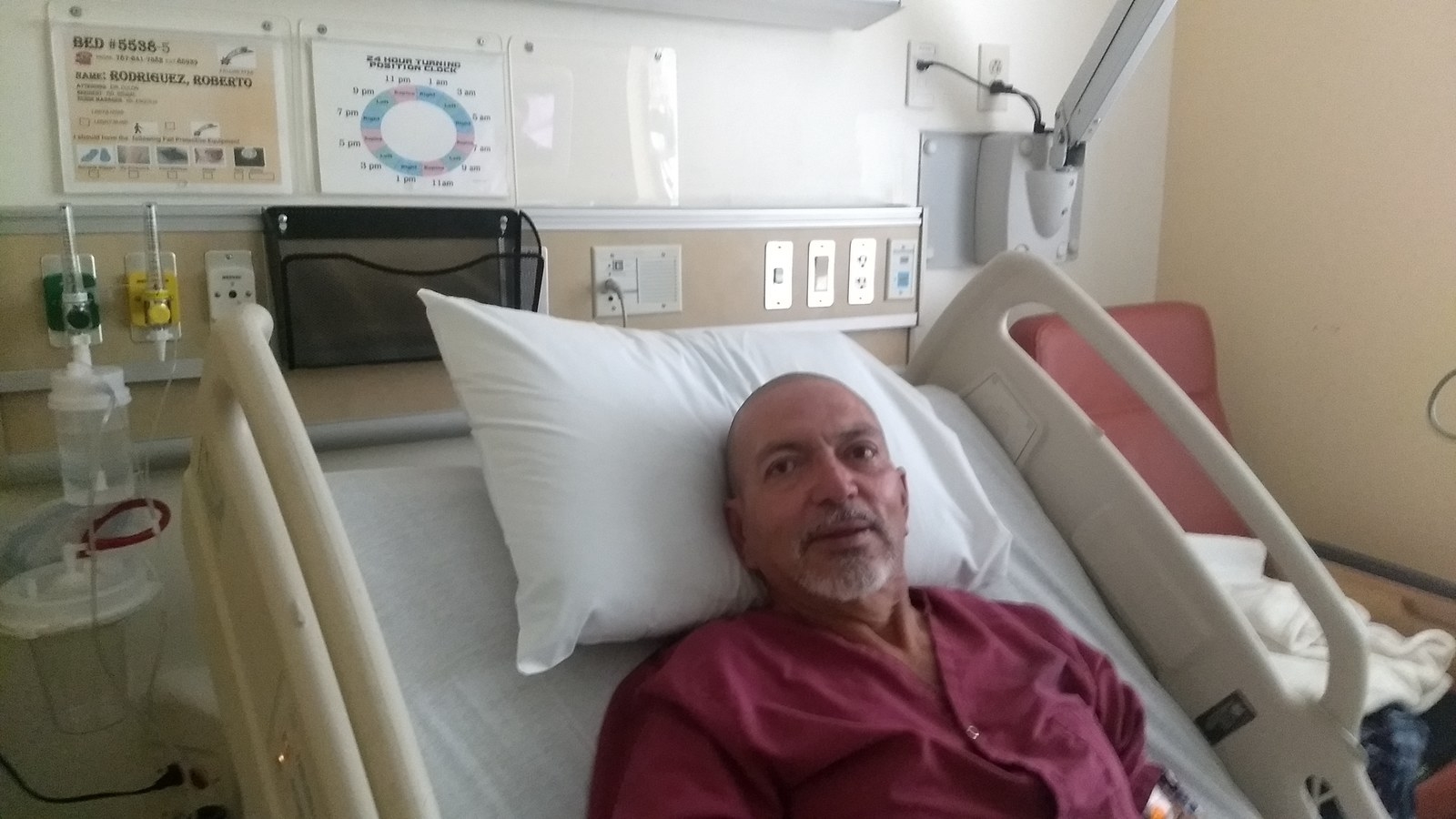
SAN JUAN, Puerto Rico — From his hospital bed in San Juan, Roberto Rodriguez noticed a few days ago that the middle toe on his left foot was looking a little blue. But he can’t feel it anymore — he’s paralyzed from the waist down.
“I was telling [my daughter] about the bruise and everything, and she was like, 'Dad, is that okay? I don't want you to get gangrene or, you know, lose your foot.' But you know, I'm not using it anyway, so if I lose it, what the heck,” he said, laughing. “If I lose it, I lose it. I try to look at it this way: It might not be so bad. I will only have to buy one shoe. You have to have a positive outlook.”
Rodriguez, 58, and his family have been hit hard by a series of events spanning the country since the beginning of the year: first, a violent robbery, and then living through two natural disasters of unprecedented, catastrophic magnitude.
The horrific tone of the year was set on its very first day when two teens approached Rodriguez on Jan. 1 in Atlanta, where he lived at the time, and demanded cigarettes and cash. When he didn't have any, they allegedly shot him and left him for dead. He sustained severe spinal injuries and permanently lost all sensation from the waist down.
"It's been kind of hard getting adjusted to this kind of life," he said.
"You have to learn how to focus and balance and everything again."
A US Army veteran, Rodriguez spent the first few months at a Veterans Affairs spinal injury center near Atlanta, then in May moved back to Puerto Rico, where he grew up.
In May, he was admitted to the VA hospital in San Juan and was released at the end of July. He was hospitalized again on Aug. 21, and has been there ever since. He's being treated for a severe infection he contracted after getting bedsores from sleeping in his wheelchair for three weeks because his medical mattress was broken.
On Aug. 25, Hurricane Harvey made landfall in Texas, soon tearing through the home in Houston where his son, daughter, and ex-wife were living.
“I’m ready for this year to be over so I can start 2018 and maybe hit the reset button, because it’s been rough,” said Rodriguez's son Andrew, 30, who’s in the process of trying to rebuild his mother’s home in Houston while worrying about his father in hurricane-ravaged Puerto Rico.

Roberto Rodriguez lives in Trujillo, about a 30-minute drive from San Juan, up in the mountains, where his uncle and aunt have a small farm with chickens and horses.
His apartment — where he’s due to return when he’s released from hospital soon — is intact but, like 86% of Puerto Rico as of Saturday morning, has no electricity. His aunt’s place across the road was completely wrecked during the hurricane.
“I saw her yesterday after being here for so long,” he said. “She said it was the most scary thing she's ever lived through."
"She said they got into a real small room, and she heard the tree branches snapping, and the house being destroyed," Rodriguez recounted. "She heard all the destruction outside. She said when she came out the next day, she cried for two or three days after that.”
After months in and out of the hospital and the rebuilding facing his family both in Houston and Trujillo after the storms, Rodriguez said he’s ready to go home as soon as the replacement medical mattress he ordered back in June arrives.
“I like to be independent as much as possible. They've been trying to push me out of here and I don't have any qualms about me going home if I can find a bed,” he said.
He’s determined not to go to a nursing home — partly because of the expense and partly because he wants to be back in Trujillo near his family, the elderly aunt and uncle who lost their home and most of their belongings during Maria.
In Houston, his son worries that his dad won’t have air conditioning, which is recommended for his compromised immune system, or cell phone reception to communicate after he leaves the hospital.

“I’ve looked up trying to get a generator through a website, through places that are there for him to pick up maybe, but everything’s sold out and I wouldn’t know how to get a generator shipped there,” said Andrew Rodriguez. “He’s told me that they won’t let him out of the hospital until he gets a generator, but I guess that’s kind of coming to an end, you know, because I’m sure they have their priorities at the hospital.”
Andrew is working at an Italian restaurant in Houston and hoping he can help his family in both Texas and Puerto Rico, while also planning for his own future — he moved to Houston from Fort Knox earlier this year to go back to school for aerospace engineering.
“I just want to make sure my dad and his family are good to go and stable again — or have some semblance of stability. I know it’s not going to be back to normal anytime soon,” he said.
While Roberto waits to be released from hospital to an uncertain situation in Trujillo, Andrew continues to work in Houston to repair his mother’s home, which is uninhabitable after taking in 4 inches of water during Harvey.
He was staying at his mother’s place in Houston to save up some money before starting his studies when Hurricane Harvey tore through Houston. As the floodwaters in their neighborhood rose, he knew they had to get their cars out and leave before it was too late.
“I could feel the water coming into the car as I was driving through. It was pretty terrifying,” he said. “I could tell that the water was high, but I was behind my mom and my uncle and they were saying that they were scared I was going to float away. They kept looking back.”

They spent the weekend taking shelter at the George R. Brown Convention Center, and have since been staying with another relative while they begin to rebuild his mother’s home, which probably won’t be done until next summer at least.
“I just want this year to be over with. I’m ready to move on and try to help my dad and my family as much as I can, and also start helping myself so I can get to school and get myself back on track,” Andrew said.
At the hospital in San Juan, Roberto repeated the phrase that Andrew said he’s heard from his dad his whole life: “If it has a solution, why worry? If it doesn't have a solution, why worry? You're still going to die.”

Roberto said he sees what his family is going through as a test from God, not a punishment, and takes comfort from his spirituality.
“[My father's] disposition during nonstressful times and stressful times is pretty much the same. It’s kind of weird. He worries but he also converts that energy into joking about things,” said Andrew.
“That’s kind of his attitude about it, but I do worry," Andrew said. "He wants to go home — but there’s no electricity there.”
